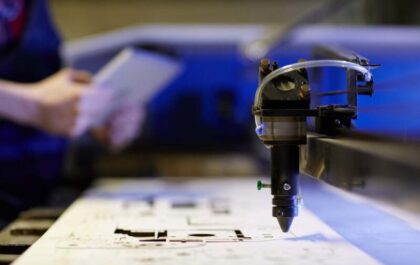Table of Contents
Introduction
A recent study showed that artificial intelligence could develop new ways of distributing wealth better than its human-designed counterparts. In addition, researchers developed by UK-based artificial intelligence firm DeepMind argue that machine learning systems are good at solving complex problems in physics. And physics help recognizes unlimited social goals such as bringing society to justice and prosperity.
Building a machine whose potential can be harnessed to serve man the way he prefers is called “consensual interest. It is complicated by the many differences based on the determination of the optimal method. Especially those related to social, economic and political topics.
Scientist Rafael Koster is the principal investigator of this paper and a researcher at Deepmind. He says: “One of the most important obstacles facing AI in interest compatibility is the multitude of perspectives humans endorse and adopt. It makes it difficult for AI to choose the preferred method,” adding, “For example. Political and economic scientists are always fighting over the best mechanisms to improve the performance and efficiency of society.”
Human Interactions – Artificial Intelligence
To heal this rift, the researchers developed a wealth distribution catalyst that includes real and virtual human interactions in the program’s training data. It guides artificial intelligence to the preferred methods for humans and has virtually fair results. However, although AI can produce astonishing results. It often deviates from desirable social conclusions and perceptions if left unintrusive. This is where humans resort to directing neural networks to the correct path.
“There is a growing realization in AI research that building humanly compatible systems need new ways in which humans and machines interact. And concentrating effort in getting the machine to learn value directly from humans to build AI of compatible value.”
In an experiment that brought together thousands of subscribers. The artificial intelligence program, called Democratic Artificial Intelligence, studied investment training under the game of general trade. Where each contestant is given a certain amount of money. This money can be contributed to public funding and brings a return from funding at the level of investment. With different modes of play, wealth was distributed to players in three traditional styles or templates: strict equality, liberalism, and liberal equality. Each with a separate return on investment.
There is also a fourth-tested method called the Human Central Redistribution Mechanism (HCRM), developed by deep reinforcement learning. It responds to data collected from players and virtual software designed to simulate human behaviour.
Subsequent experiments have shown that the central human redistribution mechanism gained more popularity from players than its traditional counterparts. As well as its popularity at the expense of new distribution systems designed by rulers who set up plans by receiving prepayments before voting.
Artificial Intelligence Has Discovered
The researcher added: “Artificial intelligence has discovered a mechanism that fixed the initial imbalance in wealth and won most of the vote. “We have shown that obtaining consensual value with the same democratic mechanisms is possible to achieve consensus in public societies. Such as the selection of commissioners. The determination of public policy or the issuance of legal judgments.”
The researchers acknowledged that their new system raised questions regarding compatibility value, as AI is based on democratic commitment. The program may lead to rampant inequality or bias in society. Assuming it gets enough popularity to vote among most voters.
There is also a crisis of confidence in the participants because they are ignorant of the identity of the wealth redistribution system in which they participate. Would they have voted in the same way if they had known that they had chosen artificial intelligence over the human system? It is not yet clear.
Conclusion
Finally, the researchers argue that the new system should not be interpreted as a radical technocratic alternative to overthrowing how the existing methods distribute wealth. But it can be seen as a research tool that helps man design better ways and solutions than we have now.
The researcher continues: “Our findings do not dictate that some form of AI government should be supported. As programs are independent in making political decisions without human interference in those decisions. “We see democratic AI as a research method for designing potentially useful mechanisms. Not a recipe for deploying AI to society.”
Related posts
Featured Posts
Exploring Advanced Techniques in the Laser Engraving Machine: 3D, Texturing, and Multi-Layered Designs
Many industries have spoken for the laser engraving machine because of its results and versatility. But recently, many advancements have…
Benefits of Vitamin D
Introduction One cannot live without the benefits of vitamin D because its virtues are essential for good health. But do…


